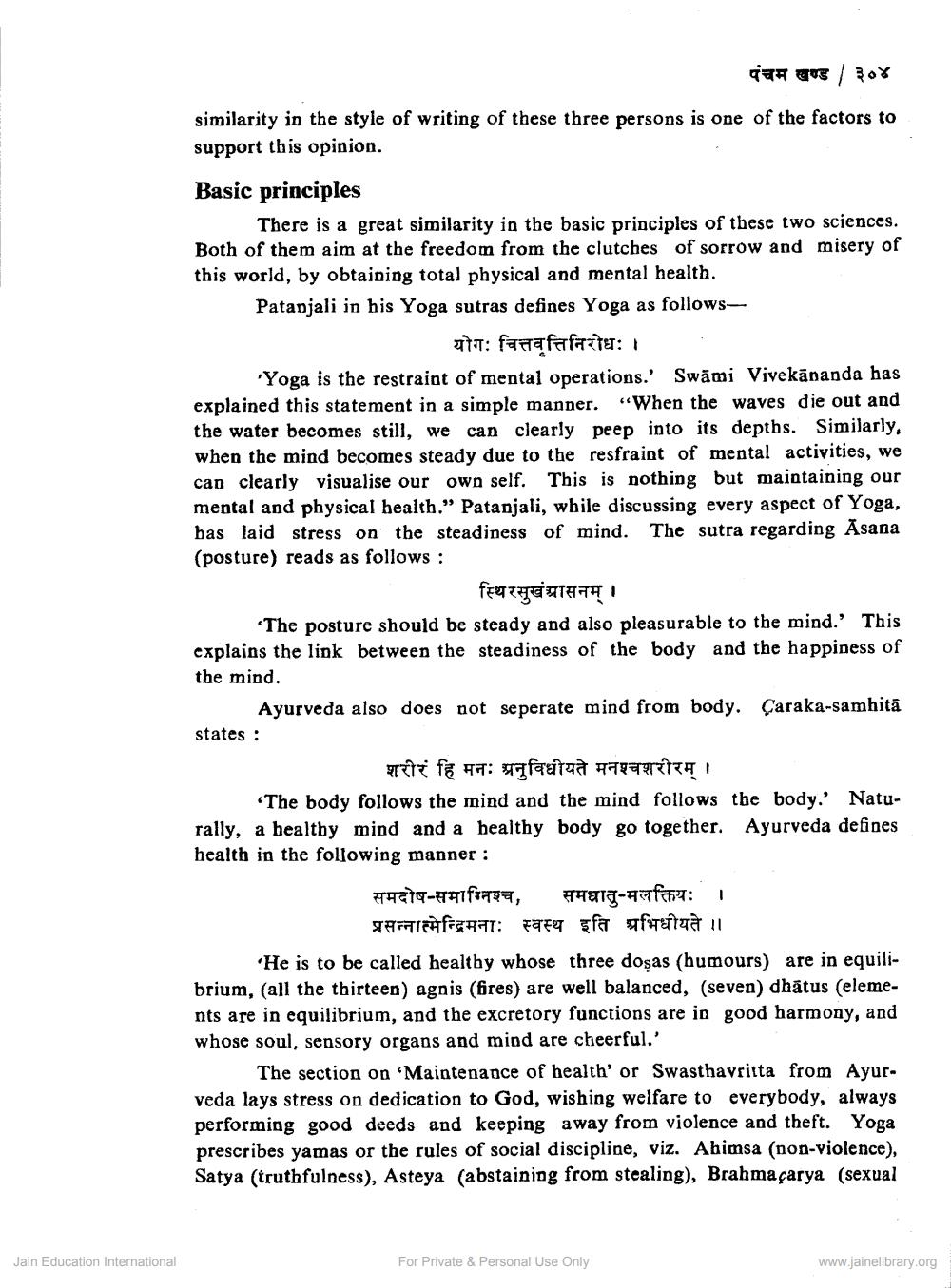Book Title: Yoga and Ayurveda Author(s): R V Ranade Publisher: Z_Umravkunvarji_Diksha_Swarna_Jayanti_Smruti_Granth_012035.pdf View full book textPage 3
________________ पंचम खण्ड / ३०४ similarity in the style of writing of these three persons is one of the factors to support this opinion. Basic principles There is a great similarity in the basic principles of these two sciences. Both of them aim at the freedom from the clutches of sorrow and misery of this world, by obtaining total physical and mental health. Patanjali in his Yoga sutras defines Yoga as follows योग: चित्तवृत्तिनिरोधः । Yoga is the restraint of mental operations.' Swāmi Vivekānanda has explained this statement in a simple manner. “When the waves die out and the water becomes still, we can clearly peep into its depths. Similarly, when the mind becomes steady due to the resfraint of mental activities, we can clearly visualise our own self. This is nothing but maintaining our mental and physical health.” Patanjali, while discussing every aspect of Yoga, has laid stress on the steadiness of mind. The sutra regarding Asana (posture) reads as follows : स्थिरसुखंगासनम् । *The posture should be steady and also pleasurable to the mind.' This explains the link between the steadiness of the body and the happiness of the mind. Ayurveda also does not seperate mind from body. Çaraka-samhita states : __ शरीरं हि मनः अनुविधीयते मनश्चशरीरम् । The body follows the mind and the mind follows the body.' Naturally, a healthy mind and a healthy body go together. Ayurveda de health in the following manner : समदोष-समाग्निश्च, समधातू-मलक्तियः । प्रसन्नात्मेन्द्रिमनाः स्वस्थ इति अभिधीयते ।। "He is to be called healthy whose three dosas (humours) are in equilibrium, (all the thirteen) agnis (fires) are well balanced, (seven) dhātus (elements are in equilibrium, and the excretory functions are in good harmony, and whose soul, sensory organs and mind are cheerful.' The section on Maintenance of health' or Swasthavritta from Ayurveda lays stress on dedication to God, wishing welfare to everybody, always performing good deeds and keeping away from violence and theft. Yoga prescribes yamas or the rules of social discipline, viz. Ahimsa (non-violence), Satya (truthfulness), Asteya (abstaining from stealing), Brahmaçarya (sexual Jain Education International For Private & Personal Use Only www.jainelibrary.orgPage Navigation
1 2 3 4 5 6 7 8
